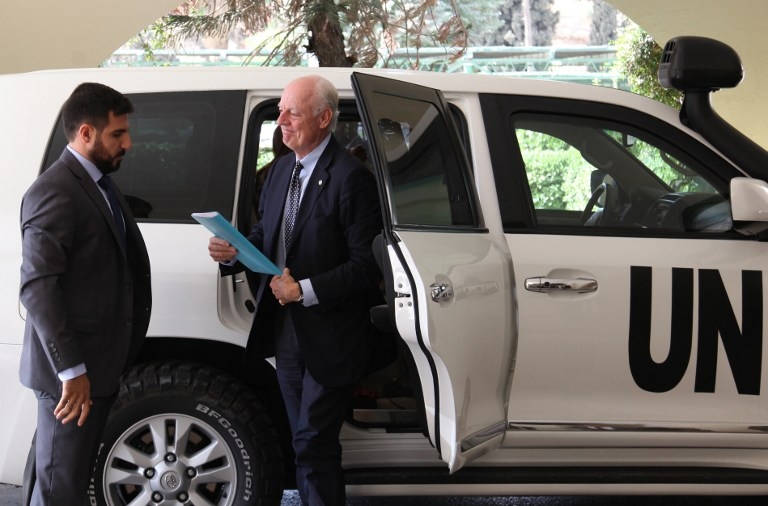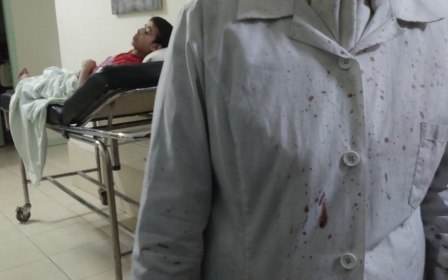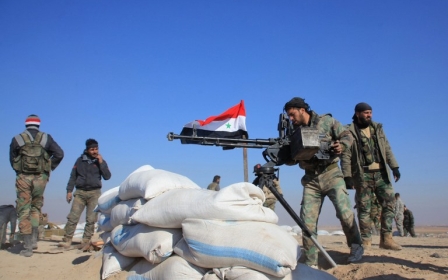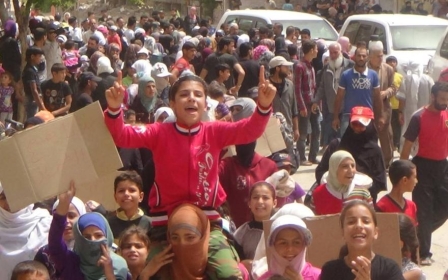Local truces will not lead to a ceasefire in Syria

Local truces in Syria are often accompanied by expressions of hope that they may spread and become a nationwide ceasefire. "These agreements and truces are the foundations for building something bigger that could cover all of Syria," UN humanitarian coordinator Yacoub el-Hilo said on Tuesday, the day after the evacuation of hundreds of fighters and civilians from three besieged parts of the country.
Earlier this month, after the evacuation of hundreds of fighters and civilians from the last rebel-held neighbourhood of the city of Homs, UN special envoy Staffan de Mistura said such truces "have great value" in that "they help the perception that a nationwide ceasefire ... is doable".
It is unsurprising that the UN should express such sentiments given that it has brokered these truces, but however well-meaning, such hope is naive and misplaced, based more on how we would like Syria to be than how it actually is.
Such truces are not accepted by the warring sides with the intention of having a ripple effect nationwide. The phenomenon is nothing new in the Syrian conflict, but they have not contributed toward a political settlement - fighting has only intensified. De Mistura's plan for conflict zones to be "frozen locally," with the eventual goal of encouraging a political solution, has made no progress since he announced it in November 2014.
Local truces are accepted for strategic reasons, in large part to further military goals. These deals enable the warring parties to fight another day - this week's truces, for example, entail pro-regime fighters being relocated to regime-controlled territories, and likewise with rebels. Acceptance would have been highly unlikely if it involved surrender.
As such, instead of contributing to a nationwide solution to the conflict, these truces are serving to cement the carve-up of Syria into various fiefdoms, as they result in the warring parties consolidating control of their heartlands at the expense of outlying territories.
Even then, peace in those areas is not guaranteed. Homs, which saw the first stage of a rebel evacuation in May 2014, followed by another this month, has been hit by two major bomb attacks in the last fortnight, with a suicide bombing on Monday killing at least 32 people and wounding 90.
There are other problems with relying on local truces to lead the way to an overall settlement. They are becoming more complicated to arrange as the number of warring parties continues to increase, often within the same locality. For example, a deal to evacuate Islamic State (IS) and Nusra Front fighters from Yarmouk collapsed over the weekend after Russian warplanes killed senior figures from other rebel groups nearby, including the head of the Army of Islam.
Relying on local truces to enable a nationwide ceasefire represents an incremental approach, whose fundamental flaw is evident when looking at the Israeli-Palestinian "peace process," which is all process and no peace, and gives warring parties or individual actors ample opportunity to play saboteur.
Anyhow, the current diplomatic framework born out of the recent Vienna conferences, while ostensibly working toward a general ceasefire, includes a list of groups to be excluded - such as IS and Nusra, among others - that represent some of the most formidable forces on the ground. IS alone was reported earlier this year to be in control of half of Syria. This makes a nationwide ceasefire impossible, and gives these excluded groups no reason to play ball.
Even if, by some miracle, a nationwide ceasefire was implemented, it would be unsustainable without a credible diplomatic plan to end the conflict. This does not exist, as so far the entire "peace process" has limped along by simply sweeping the fate of President Bashar al-Assad under the carpet, as if it is a minor detail rather than a central issue.
Opposition groups refuse to consider a role for him in a transition period, and the regime refuses to consider a transition of power altogether or to negotiate with armed groups (in other words, those that have the most influence on the ground).
Given this consistent impasse, the prospect of a viable ceasefire is doomed. However, with another round of talks scheduled for January, this will not stop the participants in this diplomatic charade from pretending otherwise.
- Sharif Nashashibi is an award-winning journalist and analyst on Arab affairs. He is a regular contributor to Al Arabiya News, Al Jazeera English, The National, and The Middle East magazine. In 2008, he received an award from the International Media Council "for both facilitating and producing consistently balanced reporting" on the Middle East.
The views expressed in this article belong to the author and do not necessarily reflect the editorial policy of Middle East Eye.
Photo: United Nations (UN) special envoy for Syria Staffan de Mistura exits a car following a meeting with Syrian officials in Damascus on 17 September, 2015 (AFP).
New MEE newsletter: Jerusalem Dispatch
Sign up to get the latest insights and analysis on Israel-Palestine, alongside Turkey Unpacked and other MEE newsletters
Middle East Eye delivers independent and unrivalled coverage and analysis of the Middle East, North Africa and beyond. To learn more about republishing this content and the associated fees, please fill out this form. More about MEE can be found here.





